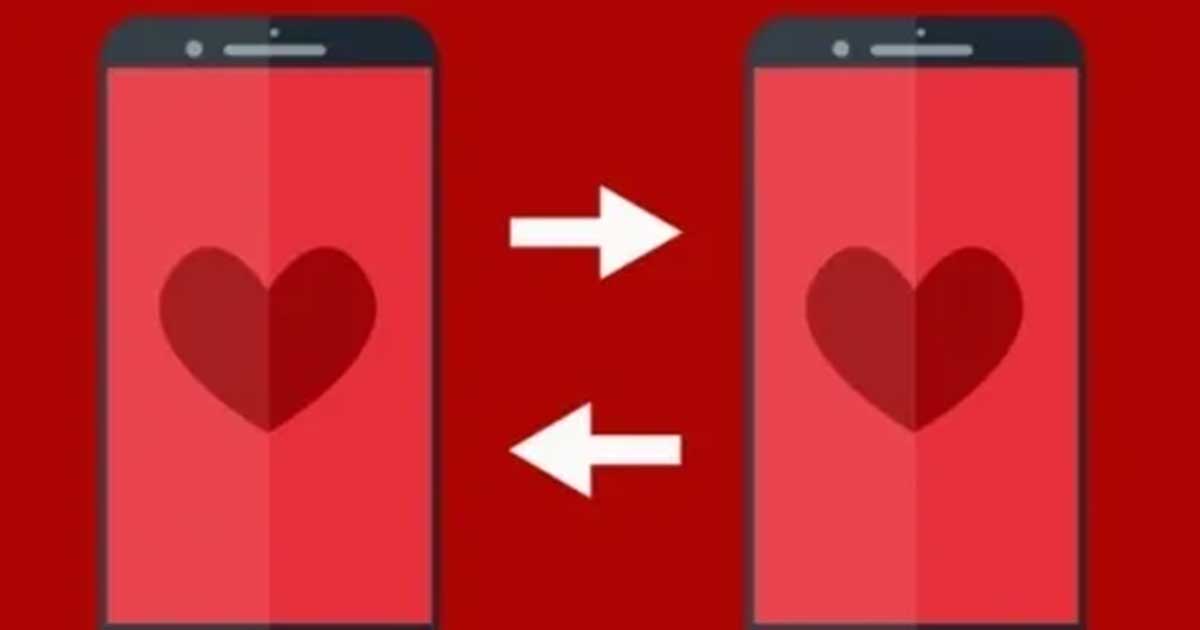As the title of this week’s blog suggests, I am appalled by recent reports about the dangers of dating apps such as Tinder.
A Four Corners investigation that was aired on Australian television last week revealed the extent of the problem and has impelled me to dedicate this week’s blog to it. While I’ve spent the last 18 years living in the comfort and security of a relationship with no need to engage the services of a dating app, over one hundred million people worldwide have downloaded Tinder in the hope of having their need for love and connection satisfied. They’re not all looking for love of course. Some people just want to have fun by indulging in the ‘hook-up culture’ that these apps facilitate. Another way of saying this is simply that people want to find someone they can enjoy casual sex with.
When I was growing up, girls who sought out sex for pleasure were branded whores and judged to be the lowest of the low. But, thankfully, we’ve mostly moved on from that way of thinking and mainstream society now accepts that what’s good for the goose, is good for the gander. Sex is no longer just about marriage and procreation, it’s about whatever two consenting adults want it to be.
Unfortunately, when you put dating on a digital platform the nature of it changes because seekers are no longer in the driving seat. Gone are the days when people relied on social outings at the pub, or clubs, to facilitate their chances of meeting their kind of people. It was a more transparent way of making connections with others. Meeting people when they’re among their tribe allowed us to see how they behave, observe how they look, hear how they talk and clock their body language so that by the time they approach us we already have a good sense of them. Now, with the likes of Tinder cornering the dating market, it is much more difficult to get a sense of who someone is. In a recent study that came out of the UK that questioned people about their usage of dating apps, 86% of respondents admitted to having an alter-ego. How scary is that?
To my old-fashioned mind, raised on a regime of outdoor pursuits with my posse such as climbing trees and playground antics, the digital platform feels less real. But what about the younger generation who are being brought up with a screen in their faces as soon as their eyes can focus? How do they differentiate between what’s true about a person and what’s pretend? It’s far easier to be fooled by having the digital wool pulled over the eyes and harder to see through it than it is in the real world.
Brain control
Tinder is the highest-grossing non-gaming application in the world with a reported revenue of $1.7bn last year thanks to its ability to keep its users trapped in swiping mode. They have found a way to extract the maximum commitment from its customers through manipulation. One of the ways they do is by sending their users messages such as ‘you missed someone who liked you’ and encouraging them to sign up for paid-for premium services that keep them engaged for longer and promises of better outcomes. We know from the aforementioned UK study that 60% of users behave differently when using dating apps then they do in real life. And we also know that the human brain is extremely vulnerable to the highly addictive nature of these apps which are designed to grab us and keep us under their control. There is a fine line between enough and too much when it comes to our digital activity. We know from research carried out on the brain that dopamine plays a major role in keeping people engaged. I covered more on this topic in my blog entitled ‘No Vice in Miami’. But there are other chemicals at play too. With Tinder, users are encouraged to ‘swipe to the right’ when they come across someone that appeals to them. This simple action of the thumb stimulates the release of adrenaline as the user gets excited at the prospect of getting closer to finding a mate. Given that the role of adrenaline is to assist the body in its fight or flight response, the body also has to contend with the subsequent release of the stress hormone, cortisol. These chemicals change the body on a molecular level. The price that’s paid for ‘love at first swipe’ is much more than anyone would have ever bargained for. I somehow doubt that the designers of these apps gave any thought to the impact they might have on the lives of their users. In the same way that a drug dealer gives little thought to how drugs will affect the lives of their customers.
The dark side
And that’s not the worst of it. The sad fact is that there is a very dark side to the most lucrative dating app of them all. Tinder is enabling sexual predators to find their next victim by allowing them to roam the platform in disguise. Four Corners interviewed a number of women who were all victims of sexual assault after meeting men through Tinder. It then revealed that hundreds of women had reported similar experiences and had taken the matter up directly with Tinder, to no avail. The sexual predators are able to hide because of a feature of the app that allows them to ‘unmatch’ their victims. Once a person has been unmatched, they no longer have access to the details of that person which makes reporting their crime virtually impossible. What’s shocking is the appalling lack of response from Tinder after receiving hundreds of complaints from women who all say they were victims of sexual assault. The fact is we don’t actually know the extent of the problem as Tinder keeps this information hidden away in a virtual black box. One story in particular from the Four Corners programme left me in tears as I watched a Mum and Dad talk about their daughter, Paula who was raped by someone she met on Tinder. With her parents support she spent four years trying to bring the rapist to justice, and only weeks before he was finally sentenced to 14 years in prison, Paula took her own life. Her parents courageously talked about her struggle and how she couldn’t live with the shame of feeling that she’d been duped. It is never a woman’s fault that she is raped, no matter what the circumstances. It is heartbreaking to hear of the pain endured by women like Paula who have just as much right to connection, fun and relationships as their male counterparts.
Accountability and care
The only way to bring the likes of Tinder to account is by refusing to use their services unless they show due care towards their customers. It is irresponsible of them to assume that one customer will be as savvy or as honourable as the next. They have a duty to put protective measures in place that prevents predators from hiding on their platform and educate their users about how they too can protect themselves. By acknowledging that the platform has been exploited for clandestine purposes, they can alert users to be mindful of the dangers. Unless they take the necessary action, I would urge people to boycott them. They will soon get the message. In the meantime, we can do our bit to educate our friends and families about the dangers of swiping into a false sense of security. The screen lies, over and over again. Don’t be duped.

